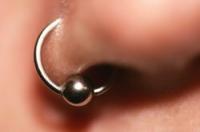What is coprime?
"Coprime" is a term that comes from school mathematics and not only plays a role in the search for the main denominator, but also occurs in number theory.

Coprime - an answer from number theory
- The amount of natural Counting (0,1,2,3...; sometimes even without the zero) is full of secrets. First of all, there are even and odd numbers.
- Then there are prime numbers, that is, numbers that apart from the "1" and themselves have no further factors.
- And: A particularly interesting phenomenon of natural numbers is that each (!) Of these numbers can be written as a product of prime numbers.
- Two (different) numbers can also have interesting properties. For example, the smaller of the two numbers can be included as a divisor of the larger one (example: 3 in 12). However, there may be one (or maybe even more) other numbers that appear in both numbers (example: the two numbers 12 and 16 both contain the "4").
- Two (or even more) numbers are referred to as "relatively prime" if there is no number that is present in both numbers in a multiplicative manner.
- So the two numbers 9 and 44 are coprime. However, 9 and 42 are not (common factor "3").
What are prime numbers and what do you need them for?
The mysterious prime number - it doesn't help, it plays a major role in ...
When are numbers "coprime"? - Tips
- Two or more even numbers can never be prime, since they always have the number "2" as a factor.
- With two numbers, at least one of the two numbers must always be odd!
- Two or more prime numbers are always (!) Coprime.
- If one of the numbers is a prime number, the other can only be prime if it is not a multiple of the number.
- A simple way to determine if large numbers are coprime is to prime them. This quickly shows that 6 and 51 are not coprime, because 51 = 3 x 17.
- By the way, there is an important application of coprime numbers in fractions: If you look for the Main denominator and if the individual denominators are relatively prime, then the main denominator is always the product of the Single denominators. This is especially true for prime numbers.
How helpful do you find this article?

